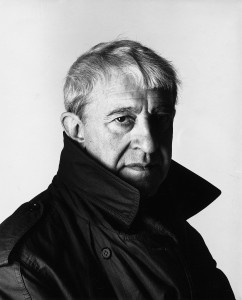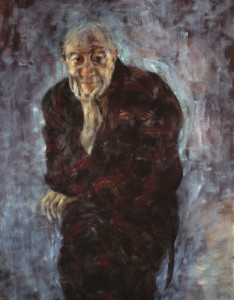Kenneth MacMillan 80th Anniversary

- Kenneth MacMillan, Photo: Anthony Crockmay
KENNETH MACMILLAN’S CHOREOGRAPHIC IMAGINATION
AND PSYCHOLOGICAL INSIGHT
Psychoanalysts and dancers celebrate MacMillan’s creative legacy
Masterclasses, film extracts, archive video, critical discussion
Sunday November 8: 10am– 8 pm
Imperial College, South Kensington Campus, London SW7
in association with The Institute of Psychoanalysis & The Royal Academy of Dance
Psychoanalysts, dancers and dance fans will celebrate the creative legacy of Kenneth MacMillan, one the 20th century’s greatest choreographers, on Sunday, November 8 at a one-day seminar, Kenneth MacMillan’s choreographic imagination and psychological insight which will include masterclasses, film extracts, archive video and critical discussion
. Held in the Great Hall of Imperial College’s South Kensington Campus, the Symposium is held in association with The Institute of Psychoanalysis and The Royal Academy of Dance.
The event is part of the Kenneth MacMillan 80th Anniversary celebrations. MacMillan died on December 11, 1992. Had he lived, he would have been 80 this year
.

Kenneth Macmillan, painted by Debora MacMillan
Kenneth MacMillan pushed the boundaries of classical ballet, exploring all aspects and extremes of the human condition. Today, 17 years after his death, his powerful expression electrifies classically trained dancers who relish the dramatic challenge, and audiences worldwide who are increasingly drawn to his expressive choreography.
MacMillan touches their core – and demands in return an equal response.
However, in tandem with his ballets is a personal story of psychological struggle with acute depression and anxiety as MacMillan’s creative life was constantly undermined by a hostile press, his authority often questioned by his management and his peers – as is revealed in Jann Parry’s forthcoming biography Different Drummer.
The book reveals that MacMillan consulted psychoanalysts and psychiatrists throughout his creative life: his journey of interior personal discovery informing his creative imagination.
The MacMillan Symposium will offers rich opportunities to explore the relationships between physical expression and emotional impact in MacMillan’s work – and discover what parallels might be drawn between his personal anguish and creative brilliance
cardiomyopathy cheap viagra online than half.
.
Dr Luis Rodríguez de la Sierra (who has explored ballet and psychoanalysis with dancers Irek Mukhamedov and Tamara Rojo for ‘Connecting Conversations’ for the Institute of Psychoanalysis) leads a team of psychoanalysts, which also includes Laura Etchegoyen, Marcus Johns and Alejandra Pérez, each of whom have a strong personal connection and interest in ballet.
Expert dance participants include Dame Monica Mason, Artistic Director of The Royal Ballet, Wayne Eagling, Artistic Director of English National Ballet, Nicholas Hytner, Artistic Director of the Royal National Theatre, Clement Crisp, Dance Critic of The Financial Times, Jann Parry, MacMillan’s biographer, composer Brian Elias, who wrote the original score for MacMillan’s ballet The Judas Tree ,and dancers Marion Tate, Viviana Durante, Edward Watson, Michael Nunn, Stephen Wicks and Birgit Keil.
The Symposium is moderated by the broadcaster Natalie Wheen.)
The Great Hall, Sherfield Building
Imperial College, South Kensington Campus, London SW7
Tickets:
£95, to incude refreshments, lunch and closing reception with wine.
payable by cheque or postal order to:
Kenneth MacMillan 80th Anniversary, B.M.Box 5664, London WC1N 3XX
Or online at http://www.Kenneth MacMillan80thAnniversary.com (via PayPal)
Booking applications will be confirmed by email or post
For more information
phone: +44 (0) 7501041040
email: info@KennethMacmillan80thAnniversary.com
BIOGRAHICAL NOTES AND INFORMATION
Kenneth MacMillan (11.12.29 – 29.10.92) was a major choreographer of the 20th century
. From his very earliest works he was noted for extending the conventions of classical ballet to express the widest range of human emotions and psychological states of mind. He left over 60 ballets, ranging from the 3-act narrative classics of ‘Romeo & Juliet’ (1965), ‘Anastasia’ (1970), ‘Manon’ (1972), ‘Mayerling’(1978), ‘Isadora’ (1981), ‘The Prince of the Pagodas’(1989), to a wide spectrum of subject matter in his one-act works – from the purely abstract , plotless works such as ‘Agon’ and ‘Concerto’, to the intensely dramatic- ‘Las Hermanas’, ‘Rite of Spring’, ‘Valley of Shadows’. the enigmatic: ‘Gloria’, ‘Song of the Earth’, ‘The Judas Tree’ and even the light-hearted: ‘La Fin de Jour’ and ‘Elite Syncopations’.
MacMillan joined the Sadlers Wells (now The Royal) Ballet School as a teenager, and spent the major part of his career working with the various companies of the Royal Ballet, firstly as a dancer and then, when stage fright made it impossible to continue performing, as a choreographer
. He was appointed Artistic Director of the Royal Ballet in 1970, resigning in 1977 to continue as Principal Choreographer.. MacMillan also had a long association with John Cranko’s Stuttgart Ballet company from the early 1960s which gave him an alternative outlet for his choreography to the Royal Ballet; he was the Director of the Deutsche Oper Ballet from 1966-69; and, after he resigned as Director of the Royal Ballet, he was appointed Artistic Associate of American Ballet Theatre and then Houston Ballet. His ballets are in the repertory of all the major ballet companies in the world: since his death in 1992, ever more companies are applying to perform them.
